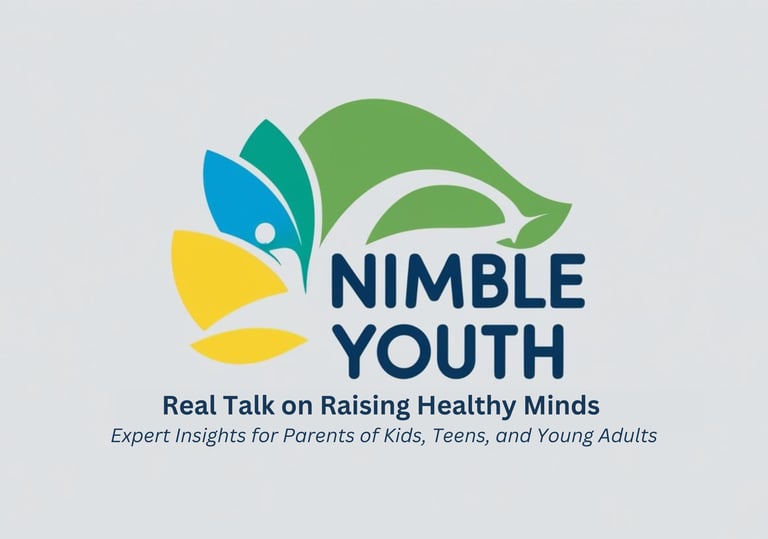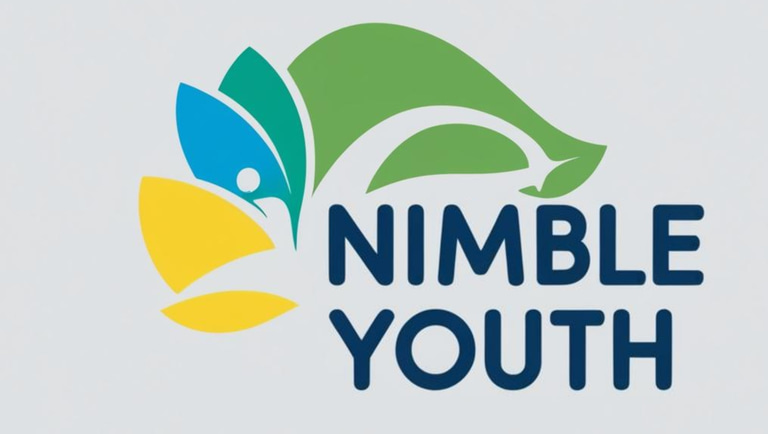Episode 24: Sandpaper Moments — Helping Kids Build Grit by Getting Comfortable with Discomfort
In this follow-up to one of the season’s most powerful conversations, author and counselor Martha Metzler returns to Nimble Youth to expand on her “Sandpaper Moments” philosophy — the idea that both parents and kids grow through the rough, gritty experiences that shape character and resilience.
M. Butterman
10/14/20253 min read


🎧 Episode 24: Sandpaper Moments, Part 2 — Helping Kids Build Grit by Getting Comfortable with Discomfort
Guest: Martha Metzler, Author and Counselor
Host: Matt Butterman
Length: ~35 minutes
Series: Nimble Youth Podcast
🌿 Episode Overview
In this follow-up to one of the season’s most powerful conversations, author and counselor Martha Metzler returns to Nimble Youth to expand on her “Sandpaper Moments” philosophy — the idea that both parents and kids grow through the rough, gritty experiences that shape character and resilience.
Host Matt Butterman and Martha explore how real health isn’t about eliminating discomfort but learning to move through it with curiosity, self-awareness, and grace. Together, they discuss how parents can support their children’s growth without rescuing them — and how learning to sit with discomfort, rather than avoid it, builds emotional grit and true confidence.
💡 Key Themes & Takeaways
1. Getting Comfortable with Being Uncomfortable
True resilience is not the absence of struggle — it’s learning to respond to it with purpose.
When parents fear or “rescue” their children from discomfort, they unintentionally send the message that their child can’t handle it.
The goal is to shepherd, not shield — guiding kids toward problem-solving and self-trust.
“Health isn’t about a life without discomfort. Peace comes when we learn to get comfortable with our discomfort.” — Martha Metzler
2. Be the Banks, Not the River
Borrowing from the Needtobreathe song “Banks,” Martha reminds parents:
“Hold them close, but don’t hold them back.”
The child is the river — full of individuality and direction. Parents are the banks — offering boundaries, safety, and gentle guidance without steering every turn.
Practical ways to build confidence:
Let your child order their own food.
Have them call a friend instead of texting.
Encourage face-to-face interactions at home.
These small acts help kids face social anxiety and develop self-agency in manageable doses.
3. Modeling Discomfort and Coping in Real Time
Kids learn more from what we do than what we say.
Martha shares how naming her own anxiety out loud (“My stomach feels tight, I’m going to take a few deep breaths”) helps her children see that anxiety isn’t something to fear — it’s something to move through.
Parents who model healthy emotional regulation teach kids:
Anxiety is part of life, not a failure.
You can respond with purpose instead of panic.
4. Blocking Out the Arena: Parenting Beyond Public Opinion
Parenting in the age of social media means everyone’s watching — or at least, it feels that way.
Martha encourages families to “block out the arena” — to stop letting the imagined audience shape how they respond to their child’s struggles.
Focus instead on authentic connection, not performance or perception.
Remember: Shame is the biggest roadblock to true transformation and peace.
5. Responding Instead of Reacting
When fear or anxiety strikes, pause and ask:
What’s making me feel scared right now?
Am I reacting to my child’s discomfort or my own unresolved story?
Whose discomfort am I trying to fix — mine or theirs?
How could this be an opportunity for growth rather than rescue?
These reflective questions (also available in the episode handout) help parents move from panic to presence.
6. Parents, Work on Your Own Story
Unhealed stories often drive controlling or fearful parenting.
Parents who explore their own emotional patterns model courage and authenticity.
As Martha says, “We’re not broken, we’re patterned.”
Healing your story helps your child write their own — without being burdened by your fears or unfinished chapters.
7. Your Child’s Discomfort Is Their Classroom
Struggles are opportunities for learning and growth — not reflections of parental failure.
Let your child’s voice emerge, even if it means sitting in silence or letting them disagree.
Resist the urge to assume what they feel; instead, ask and listen.
“Your child’s discomfort is their classroom — it’s where they learn who they are and what they’re capable of.” — Martha Metzler
🧭 For Parents: Reflection Prompts
Martha shares these questions to use when fear or frustration arises:
What am I afraid of right now?
What part of my story might this be touching?
What does support — not rescuing — look like here?
What can this struggle teach my child about who they are?
How can I respond with curiosity rather than control?
👉 You can download the full Parent Reflection Handout for this episode at:
www.nimbleyouthpodcast.com/resources
📚 Mentioned Resources
Sandpaper Moments by Martha Metzler
Internal Family Systems (IFS) Therapy framework
“Banks” — song by Needtobreathe
🎙️ Listen & Connect
📘 Learn more about Martha Metzler: marthametzler.com
📱 Follow us on social media: @nimbleyouthpodcast
© 2025. All rights reserved.


